ADATA is all about storage solutions, but the company has utilized the XPG sub-brand to create more PC components and peripherals. Today, we’re looking at the XPG Alpha Gaming Mouse, available in both wired and wireless flavors. This new gaming mouse promises solid gaming performance with a PixArt PAW 3335 sensor.
It’s still difficult for some companies to produce more affordable gaming mice without sacrificing some function or feature. Perhaps the ergonomics isn’t as good as the competition or the customization is more basic. There’s usually something found in the best mouse that’s overlooked for the price to be brought down to earth.
We’re going to run you through everything that makes the XPG Alpha great to use and also why you should perhaps avoid it.
Price, specifications, and availability
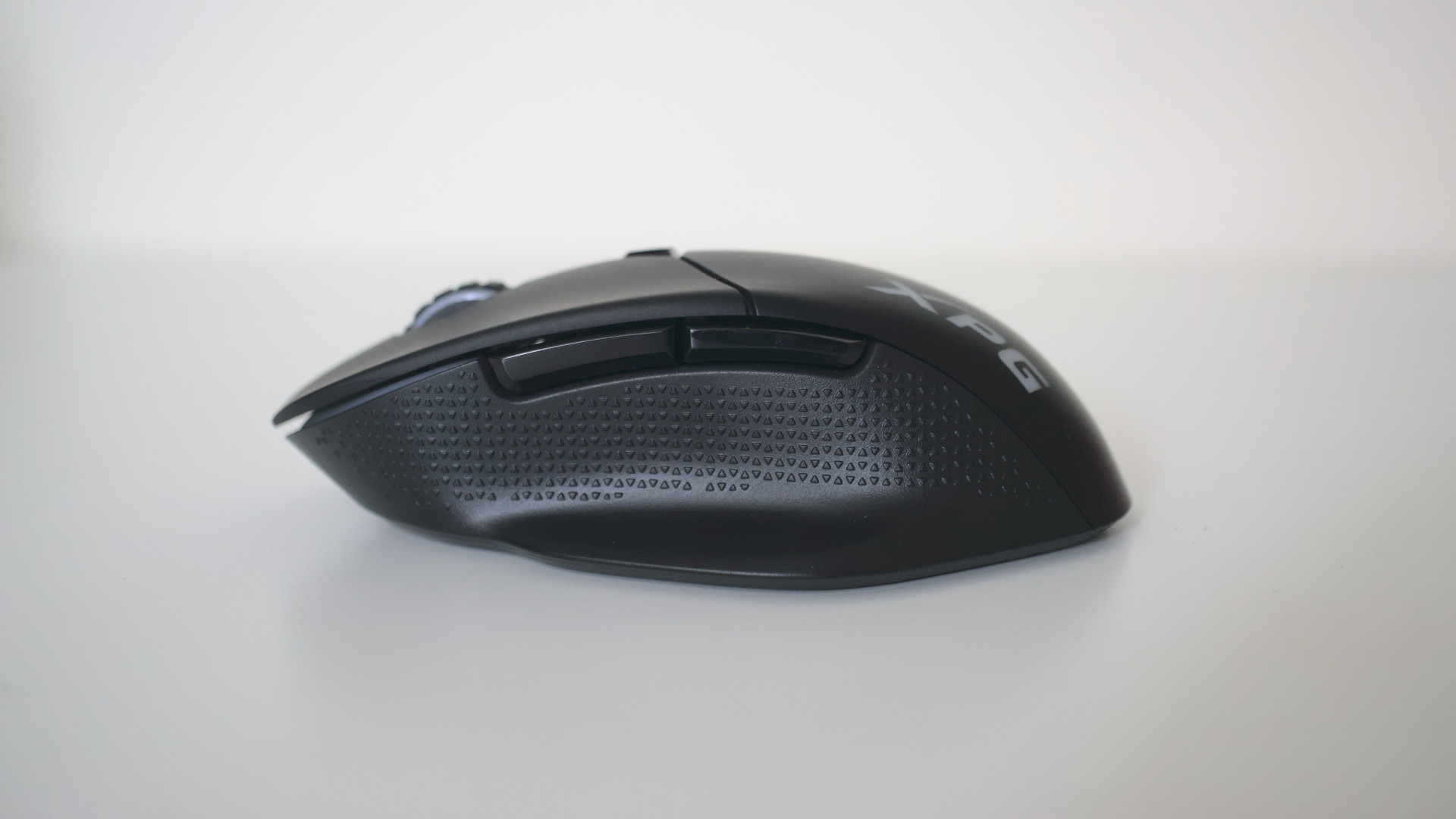
The XPG Alpha is available as a wired or wireless gaming mouse, costing $39.99 and $59.99, respectively. The specifications of the two mice are almost identical, aside from the internal battery and wireless capabilities. The only other difference is the weight with the wireless Alpha weighing about 20g more.
| XPG Alpha | XPG Alpha Wireless | |
|---|---|---|
| Wired | USB-C | USB-C |
| Wireless | — | 2.4GHz, Bluetooth 5.1 |
| Battery life | — | 60 hours |
| Sensor | PixArt PAW 3335 | PixArt PAW 3335 |
| IPS | 400 | 400 |
| Acceleration | ~40G | ~40G |
| Polling | 250Hz, 500Hz, 1000Hz | 250Hz, 500Hz, 1000Hz |
| Switches | OMRON (60 million click rating) | OMRON (60 million click rating) |
| RGB lighting | ✅ | ✅ |
| Buttons | 6 | 6 |
| Dimensions | 128mm x 78mm x 40mm | 128mm x 78mm x 40mm |
| Weight | 78 ±5g | 98 ±5g |
| Warranty | 2 years | 2 years |
| Price | $39.99 | $59.99 |
XPG Alpha Gaming: What I like
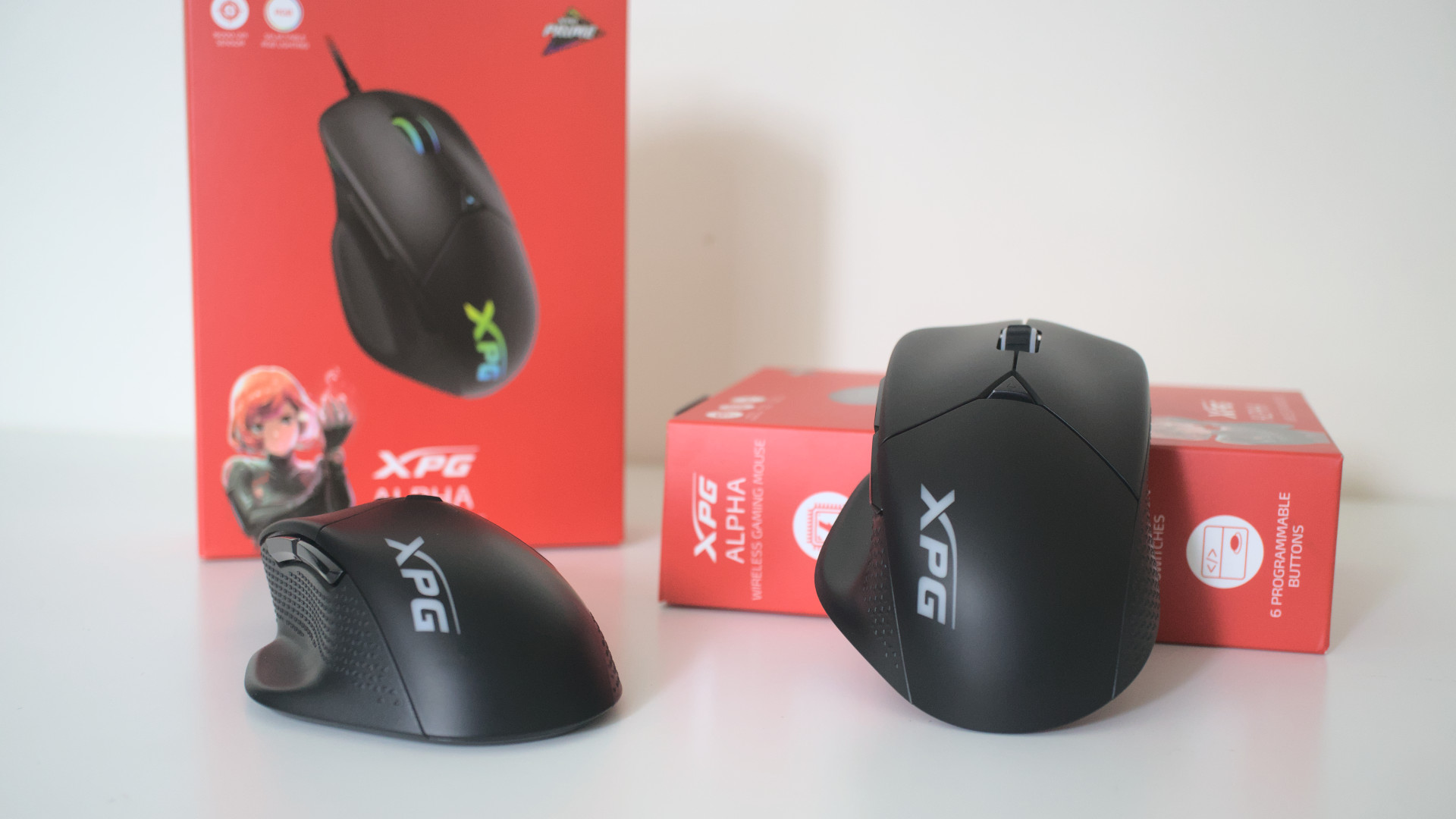
As well as the specifications, both the wired and wireless versions of the XPG Alpha gaming mouse come with the same packaging and contents. You’ve got the same manuals and USB-C cable. But wait, the Alpha Wireless comes with 2.4GHz support, right? XPG managed to do something we still complain about to this day with other brands.
The PixArt PAW 3335 is a great mid-range sensor and is found in both XPG Alpha mice.
The wireless dongle is actually stored inside the mouse itself. Not only does this keep it safe when not in use, but allows one to take it along for the ride to LAN events. The design of the XPG Alpha is a black slab of lightweight plastic with some subtle RGB lighting through the logo and scroll wheel and has a total of six buttons.
The actual sensor inside the two mice is the PixArt PAW 3335, a mid-range sensor with the ability to go up to a sensitivity of 16,000 DPI. OMRON switches are used for the left and right-click buttons with a rating of 60 million actuations. You’re going to be using this mouse for many years with average use.
Using the XPG Alpha is a pleasant experience. It’s light enough for quick movements and lifts, and the PixArt sensor is more than capable of keeping up. XPG offers software to allow for the customization of not only the DPI, but also the six programmable buttons.
It’s comfortable to use the mouse for prolonged gaming sessions and with a few grip styles too. Neither mouse is ambidextrous, however.
XPG Alpha Gaming: What I dislike
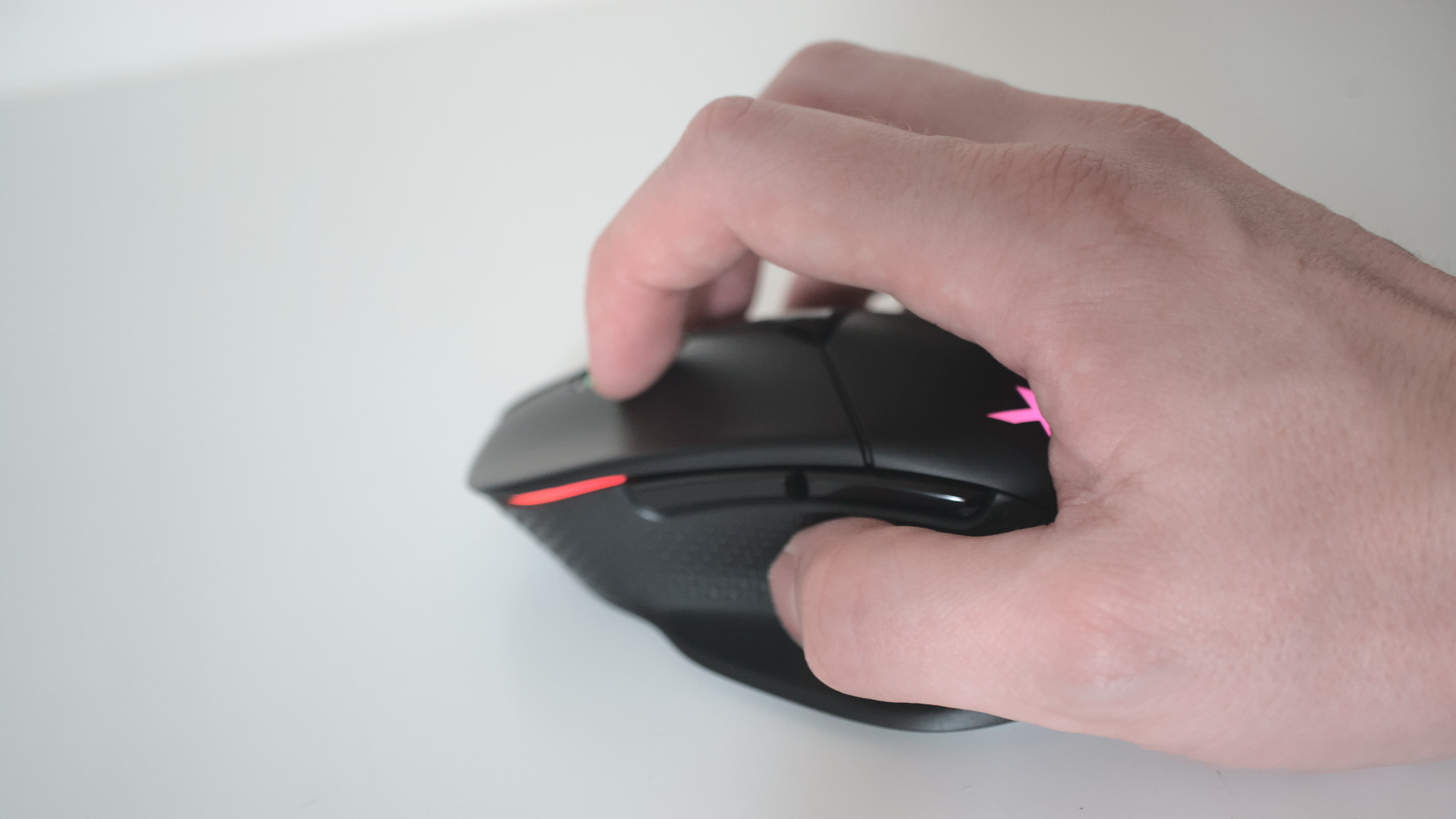
One issue I have with the XPG Alpha is the proprietary USB-C cable and ridges that prevent you from using other cables. This is a neat design that helps keep the cable secured to the mouse, but it does mean you will have to make sure your USB-C cable won’t hit the ridges.
Then there’s value. XPG priced the Alpha well, but this does mean you’re going to have to choose between the Alpha and mice like the excellent Razer DeathAdder V2.
XPG Alpha Gaming: Competition
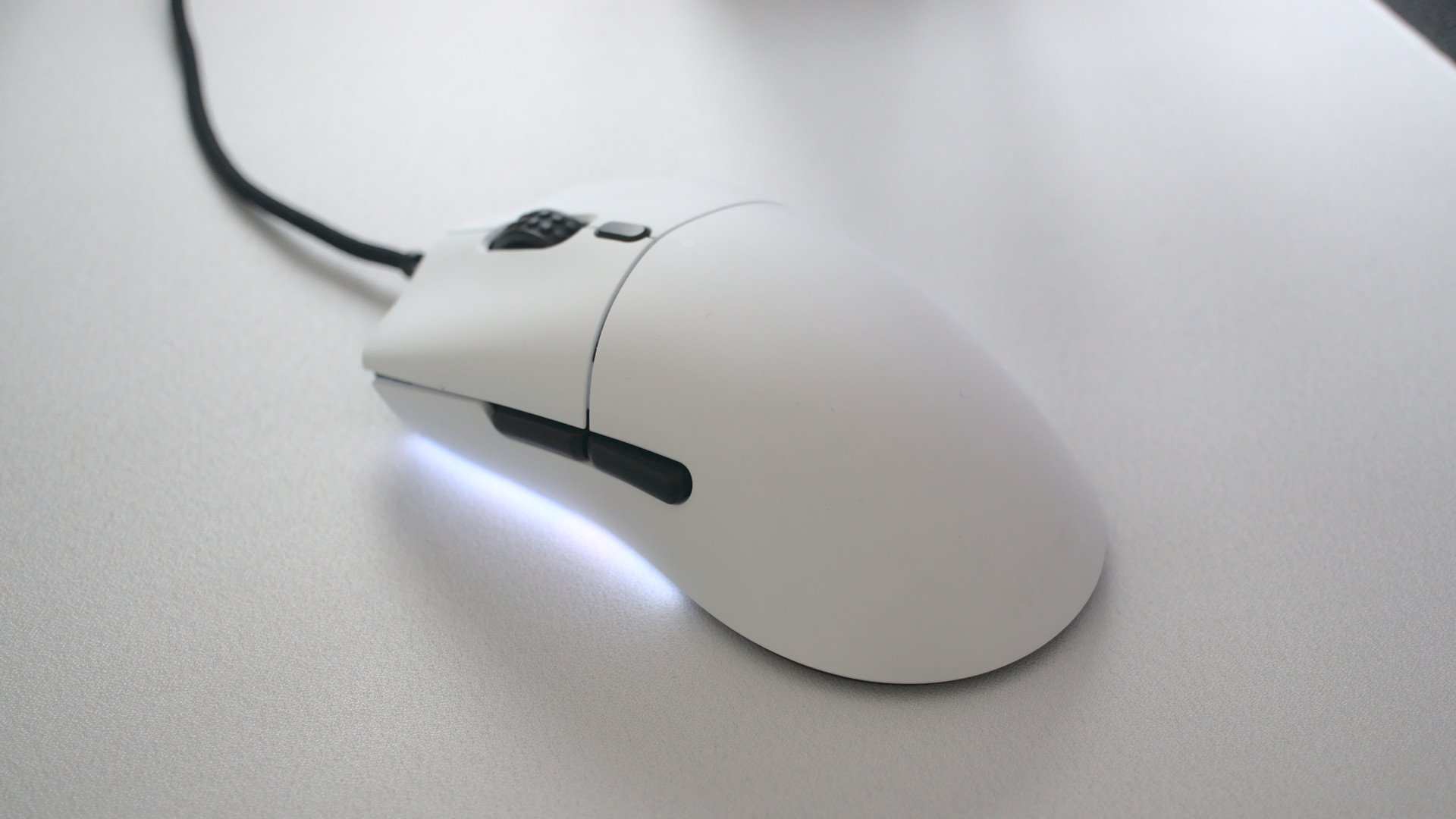
NZXT made a splash with its Lift mouse as its first peripheral launch. Companies have to get it right when attempting to tap into such a competitive market segment like gaming mice, and it’s surprising that XPG (and ADATA) didn’t put more into the Alpha. It has the model name for a flagship gaming pointer, but it almost struggles against competitor gaming mice.
The NZXT Lift is $50 and comes with a better PixArt sensor. The overall build quality feels better too with more subtle lighting effects, it’s lighter than the XPG Alpha, and the cable feels better when frantically moving it around a large mousepad. The wireless Alpha from XPG has the advantage of 2.4GHz and Bluetooth wireless capabilities.
Another mouse to bear in mind against the XPG Alpha is the exceptionally good Razer DeathAdder V2. It’s a little more expensive, but you get better ergonomics, better performance, a smart drag-free cable, and amazing calibration. It’s one of the best pointers you can buy for PC gaming, and it makes even the Alpha from XPG a tough sell.
XPG Alpha Gaming: Should you buy?
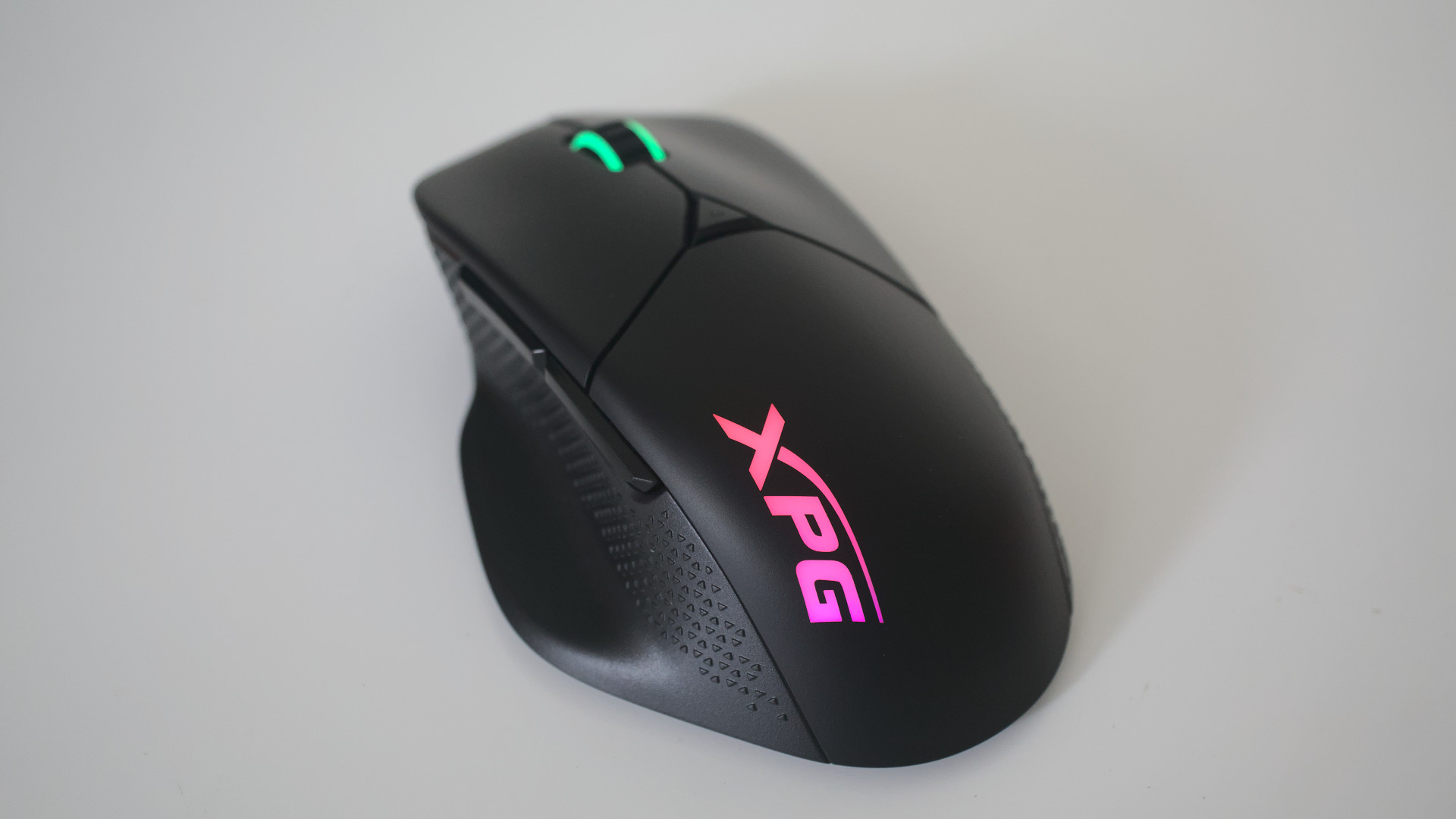
You should buy if…
- You don’t want to spend more than $60 on a gaming mouse
- You want a good mouse with a decent PixArt sensor
- You play games with simpler control schemes
You shouldn’t buy if…
- You want a premium gaming mouse
- You want to use your own USB-C cables
- You plan on playing a MOBA/MMO with loads of abilities
The XPG Alpha is a great gaming mouse. Both the wired and wireless versions of this pointer are worth considering for a more budget-focused gaming PC setup, but one must bear in mind competitor gaming mice that could be available at a discount. The Razer DeathAdder V2 is so good and can be often found on sale.
But don’t let that put you off the XPG Alpha completely. If you don’t want to spend more than $60 on the MSRP of a gaming mouse, you could do much worse than this pointer. It comes with a good Pixart sensor for excellent in-game performance. It’s perfectly suited for games with simpler control schemes (MMO and MOBA fans should look elsewhere).
There are a few concerns with the Alpha, however. Firstly, the USB-C connection has some ridges that help secure the supplied cable to the mouse. It’s great to see XPG offer the ability to remove and swap the cable, but this design means you won’t be able to use your own USB-C cable as it may be affected by these ridges. Overall, the XPG Alpha is a good mid-range gaming mouse.
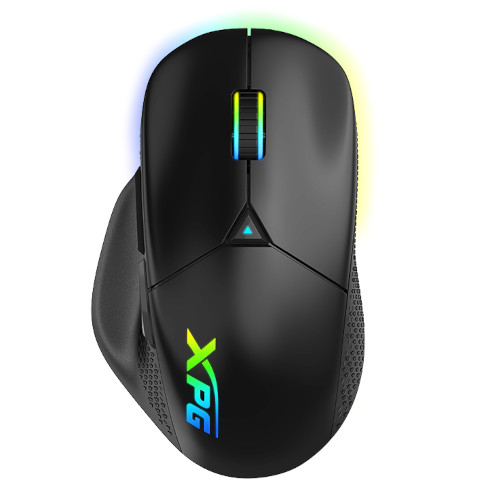
(opens in new tab)
ADATA launched two XPG Alpha gaming mice, one wired and another with support for 2.4GHz and Bluetooth wireless connections. They’re decent pointers with an affordable price tag.




